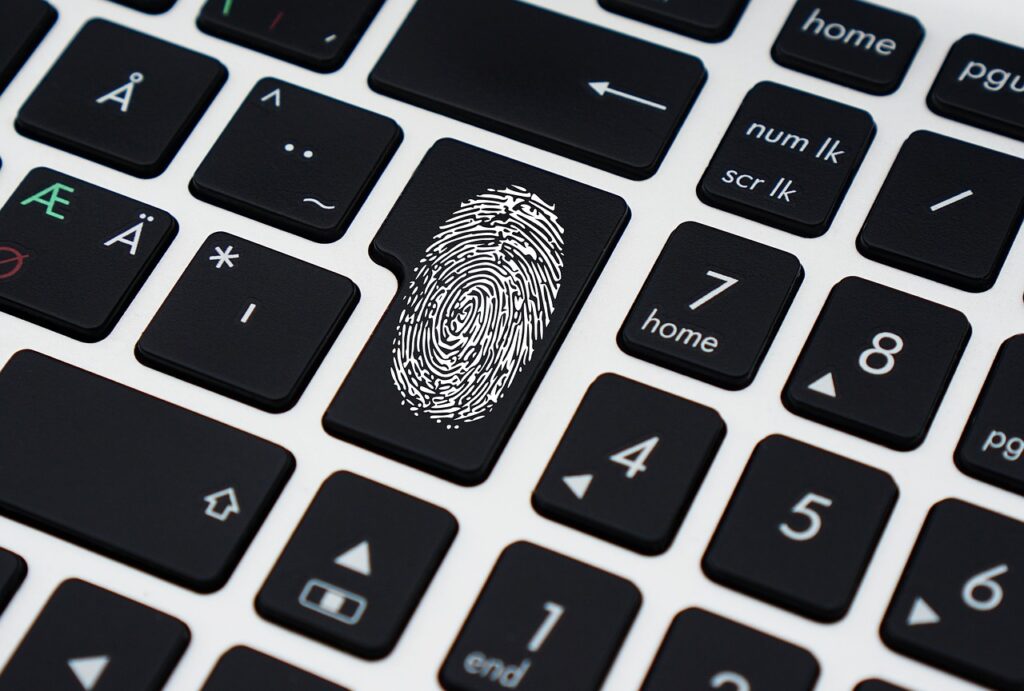The value of Bitcoin has exploded over the last two months and today the cryptocurrency climbed for the first time over $3,000. Reason enough for many to get in the game and bet on a further rise. To do so, you need a Bitcoin wallet, which serves to store the information necessary to transact bitcoins. If you move money there surely needs to be some identity verification, not least to comply with KYC/AML regulations, but how does it work in practice since none of the provides has a branch you can simply walk in to? PlanetCompliance did a really check and shares its user experience of Cryptocurrency KYC in the age of blockchain.
Bitcoins are stored on the blockchain transaction ledger, but if you want to move them around you need a Bitcoin wallet. The wallet basically stores the digital credentials of bitcoin holdings and allows you to receive and spend them. That’s why, a couple of weeks ago, I signed up for two cryptocurrency wallets as I needed one to receive bitcoins myself. After reviewing a couple and trying the two I had signed up for, I chose one of them to get my first batch.
Bitwala is a global blockchain-based payment service provider headquartered in Berlin that according to its website is active in more than 200 countries, 20 plus currencies and has more than 25,000 users. Signing up is easy, as with many services all you need is your name, email and a password, or alternatively sign up through Google or Facebook. The process takes a couple of minutes tops and you’re good to go.
So, one day the Bitcoins arrived in my wallet, so I now I was faced with the question what to do with it. Obviously, and some people may agree with that, it could make sense to cash in on the recent spike of the Bitcoin price, sell and transfer the money to a regular account. However, since in line with KYC and AML regulations, I assume, Bitwala initially gave me only Level 1 verification, I had a monthly limit of €200, but since so far I only had to confirm my e-mail address, (which doesn’t necessarily give away much about me) I suppose that’s fair.
Level 2
However, not really a massive budget to transfer money (after all, one of the use cases of crypto wallets is international money transfer…), so I proceeded right away to achieve Level 2 verification. For that, I had to upload 1) a copy of proof of identity, i.e. any government-issued ID such as a valid passport, driver’s license, ID card or any other valid government-issued ID card that shows a biometric photograph/identifier; and 2) a proof of address that shows full name and residence address, e.g. utility bill or bank statement not older than last 75 days. If you have those documents at hand, you can actually scan them by taking a photo with your smartphone or webcam (provided the quality is sufficient), so done in a couple of minutes. Bitwala states that “Verifications usually take between 2-4 business days for documents. Please do note that the process may take longer depending on the volume of verification requests that we receive” on its website. In reality, it took close to a month to reach the next level that gives you a monthly €2,000 limit, but in their defence, I probably chose a very busy period thanks to the recent increase in Bitcoin value, which probably made a lot of people jump on the train.
Level 3
Now that I had got that far, I thought I might as well move on to the 3rd level, which allows you to move up to €50k a month. In order to do so, I had to schedule a Skype call to confirm that I’m not someone who had stolen the docs from Level 2.
Someone had told me that they had been made to wait for quite a while to get a slot, so I tried to sign up right away. Scheduling is actually done through 3rd party provider Doodle and though the same and following day were already packed, I picked three slots on the second day to suggest to Bitwala support, from which they chose one.
After having connected on Skype, the scheduled time of the call arrived and I was asked by my new Skype friend to confirm that I have access to my webcam, microphone, email and identification document. I duly confirmed and was almost immediately called by a female member of the customer services department. After a few words of introduction, a notification that the call would recorded to which I had to agree, I had to hold up my proof of identity to my webcam. My Skype counterpart asked me to adjust the position once or twice and must have been entering the information in a form on her end, because as a second step I received an email to the account I had signed up with. The email contained a code in the form of a couple of numbers, which I had to read out, before I was asked to check my details. Apart from a typo everything was in good order and almost instantly following my confirmation, the Bitwala representative notified me that I was now approved to Level 3, which was almost instantaneously attested by an email in my mailbox. Following a few pleasant salutations, my call ended and I’m now able to spend up to €50,000 through my account each month, though unfortunately I’m not likely to be in the financial situation to do so (unless the Bitcoin multiplies in an even more impressive manner than it has in the last weeks).
Conclusion
Aside from the extensive time it took to verify my documents, which kind of thwarts the idea of KYC automation, it has been a speedy operation. Surely, the surge of Bitcoin value may have caused wallet providers to find themselves in challenging times from an onboarding perspective (trading volumes on the main exchanges appear to be significantly lower though since the start of the year compared to 2016Q4), in particular considering that Bitwala was founded only 2 years ago, so you may be tempted to cut them some slack, though I couldn’t help to feel a bit disappointed initially (not to imagine if I’d had to access those funds urgently). Having said that I don’t have any comparable experiences with other providers and I vaguely remember that opening an account with a “real” in most cases also never went entirely smoothly…
Anyway, we’d love to hear your experiences or if you have any thoughts and comments, so drop us a line at info@planetcompliance.com, won’t you?

